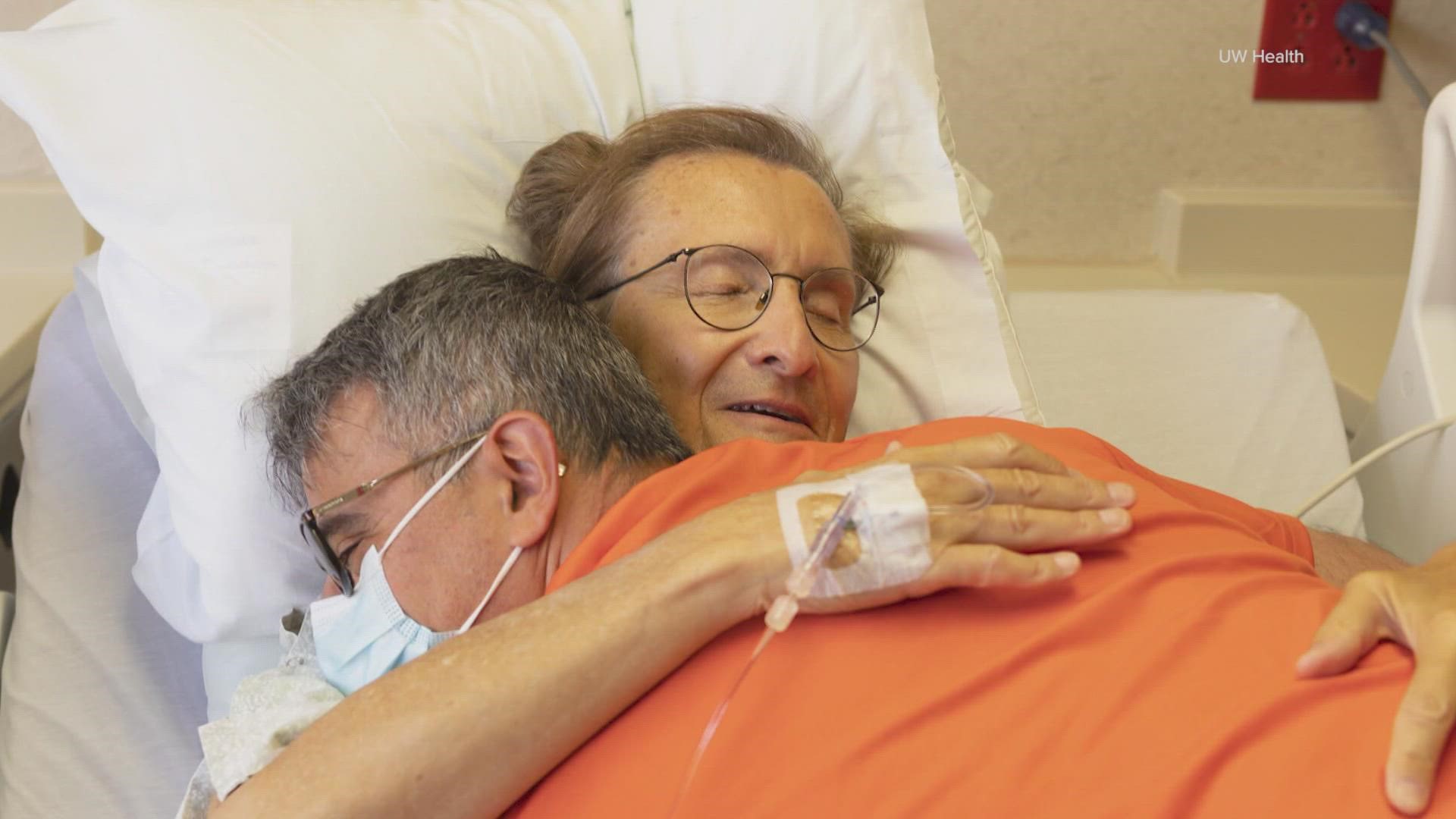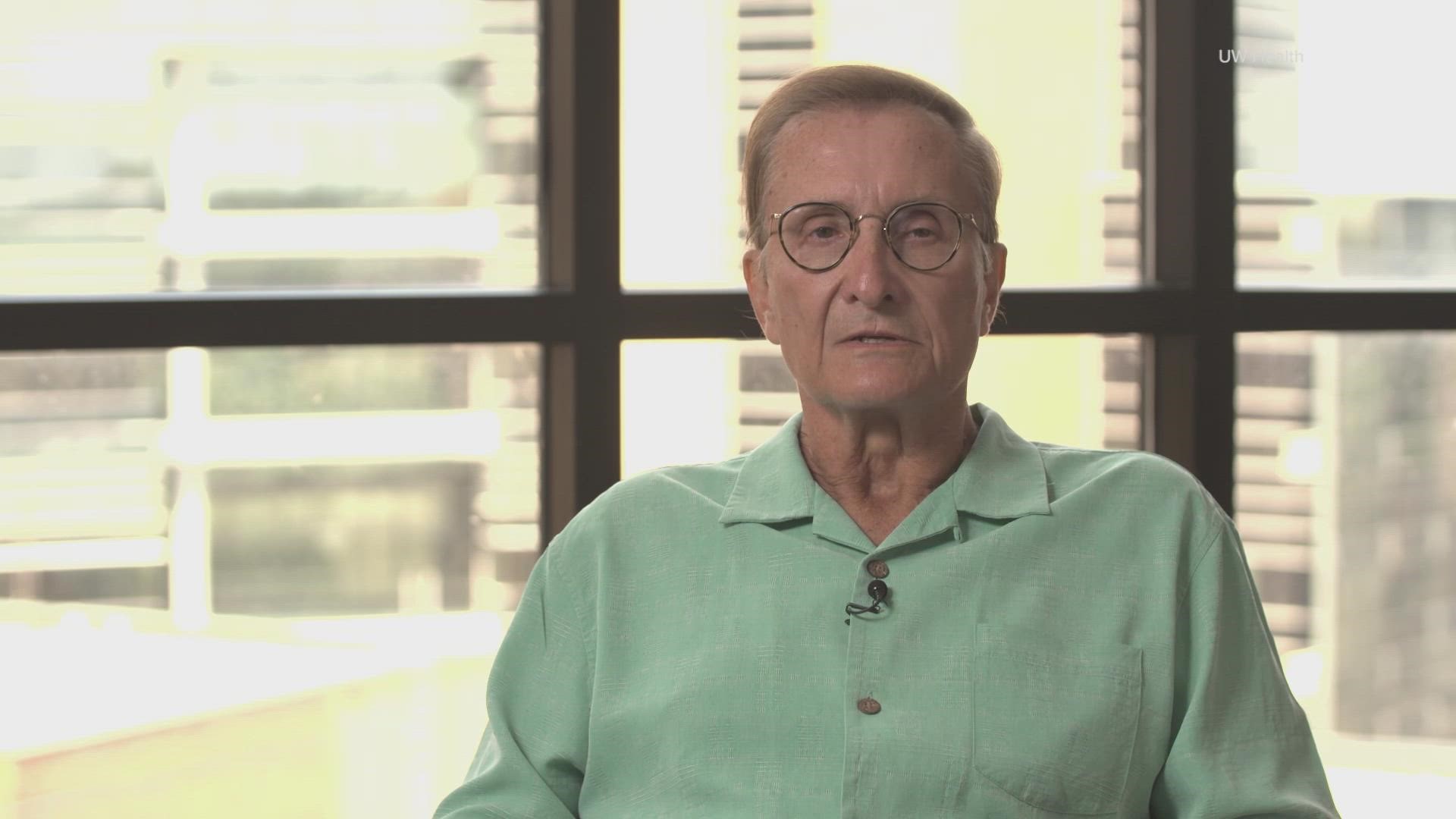PORTLAND, Maine — The chair of Maine Medical Center's Department of Medicine announced that he recently donated his kidney to a former patient in Wisconsin in hopes of inspiring others to donate their organs.
Aji Djamali, MD, recently donated his kidney to a former patient at the UW Health Transplant Center (UW Health) in Madison, Wisconsin. Djamali was a professor of medicine and surgery and transplant nephrologist leading the division of nephrology at UW Health.
Djamali first met his recipient, John Jartz of Wisconsin, in 2015 when Jartz was his patient. Jartz has polycystic kidney disease (PKD), an inherited disorder in which clusters of cysts on the kidneys cause them to enlarge and eventually stop working.
Djamali treated Jartz for two years, and they became friends. Djamali later referred Jartz to Gauri Ghutani, MD, a nephrologist who specializes in PKD.
Eventually, doctors told Jartz it was time for him to either get a kidney transplant, or start dialysis.
"The impact of dialysis on your lifespan is - these days - worse than many cancers," Dr. Djamali said. "Every time I see a patient on dialysis being stuck with a dialysis needle, I hurt for them."
Jartz began looking for a donor. Little did he know, the man treating him for two years, would be the answer.
"I was inspired by donors that I evaluated on a routine basis," Djamali said. "I wanted to walk the walk. There is a lot of good and kindness in this world and kindness and love can make an impact. So let's influence that."
Djamali said he had been wanting to donate a kidney for more than 20 years because he knows the impact that living donation has on the lives of patients waiting for a donor. Years ago, Djamali’s wife had asked him to wait until their three children were grown before he donated. With all three children now out of the house, the time was right.
"When he showed up that day, what he effectively did was save my life," Jartz said. "Part of him is in me, so to me, I look at him like my brother."
Djamali, who has the same rare type B blood type as Jartz, learned he was also a near-perfect match in 2021, just as he was moving to Maine to chair the Department of Medicine at Maine Medical Center (MMC).
"We hugged and we looked at how much urine he was making compared to mine, we were competing. His labs came back and his kidney function was better than mine. 'What are you doing to me here?' We were teasing. Unreal. Tears were shed. I can't relive that. It was just unbelievable," Djamali said. "Finishing the race, crossing the line, elation, happiness, helping someone with immediate impact has impact on you."
“Living kidney donation saves lives, and I hope my experience serves as an example for others in my new state of Maine and across the country.”
"He's given me the gift of life. That's the most important thing you can do and I'll never forget it," Jartz said.
The need for life-saving organ donors continues to grow both in Maine and across the country. More than 240 people are currently waiting for a kidney transplant in Maine, a number that has more than doubled during the course of the COVID-19 pandemic. Patients typically wait more than five years for a kidney.
Kidneys from living donors typically last far longer than those from deceased donors, according to Maine Transplant program director Dr. Juan Palma. After a recovery period, both donors and recipients are able to live full, active lives.
“There is no substitute for living donation when it comes to the health of our recipients,” Juan Palma, MD, the director of living donation at the Maine Transplant Program, said. “A healthy body and a willingness to donate are all you need to explore whether becoming a living donor is right for you.”
“I have always admired kidney donors for sharing the gift of life,” Djamali said. “Now that I have had the privilege to be a donor, I encourage anyone who is healthy and interested to learn more about living donation.”
Living donors do not need to have the same blood type as their intended recipient. The Maine Transplant Program continues to take steps to remove barriers to living kidney donation and actively participates in the National Kidney Registry, where recipients and donors from across the country are matched with each other. Living kidney donors can also donate in advance for a family member who may need a kidney transplant in the future, or donate to create a “voucher” for a recipient they are not compatible with. The voucher allows the recipient to receive a kidney from a donor within the Registry.
Anyone who is interested in learning more about living kidney donation can visit the Maine Transplant Program website or call the living donor program toll-free at (800) 870-5230.


